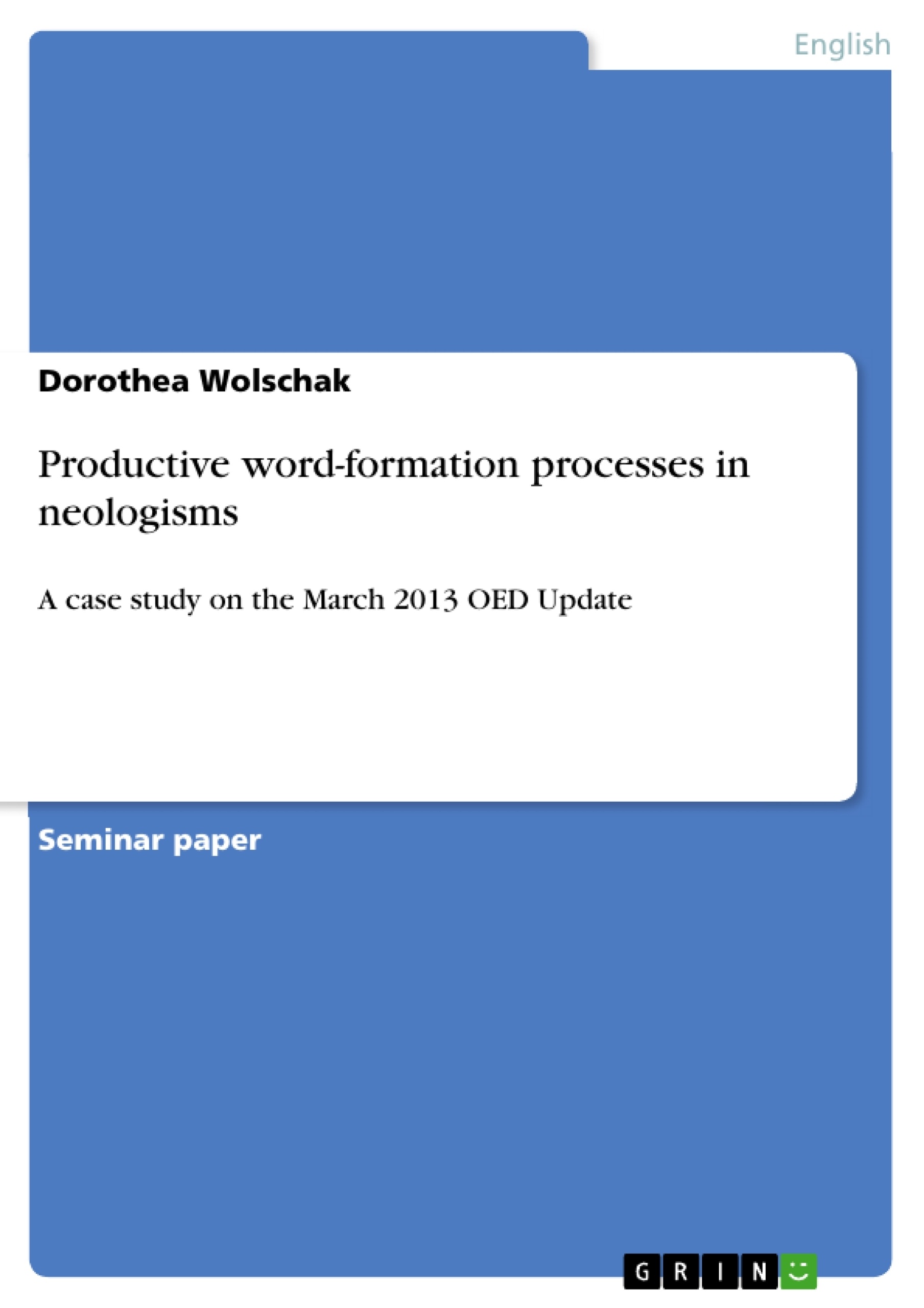People have always been interested in language. First records of Sanskrit grammar, morphology and word-formation rules were written down by Panini over 2500 years ago. So it is not surprising that especially now with all the possibilities technology offers, linguists are determined to identify THE word-formation-theory. In the last century there has been a boom in publishing, creating enormous corpora that allow linguists to study a far wider range of written language. Due to the technological possibility of sound and video recording, there are also numerous spoken accounts of language available now (Bauer 1994, 9). In the last decades however, according to Bauer, word-formation is a rather “confused area of study“(2002, xiii), mostly because of its various terminology as well as different methodological and theoretical approaches. Therefore this paper will concentrate on and use the standard terminology Bauer agreed on in English Word-formation.
Bauer notes furthermore the confusion in the field of productivity in word-formation. The fact that word-formation processes are in fact productive and create new lexemes can be proved by consulting any dictionary of neologisms or updates in other dictionaries. Nevertheless, linguists dispute over the extent to which word-formation is productive generally. Here the dispute between transformationalist and lexicalist positions to productivity should be mentioned (2002, 62 f., 75). But since this paper will focus on specific neologisms added to the Oxford English Dictionary, the decision of what is listed as a new and independent lexicon entry was made by someone else and should not be of any concern here.
This paper will deal with the subject of words, especially newly formed words. What exactly are neologisms and how do they come about? What word-formation processes are involved in the creation of new words? How productive are the different types of word-formation? This paper attempts to answer these questions to a certain extent and furthermore picture the contemporary productivity of word-formation patterns by analysing the new word entries of the March 2013 update in the Oxford English Dictionary as a case study.
Inhaltsverzeichnis (Table of Contents)
- Introduction
- New Words
- What is a word?
- Inflection v. Derivation
- Neologisms
- Lexicalization
- Word-formation
- Productivity
- Word-formation processes
- Derivation
- Conversion
- Compounding
- Shortening
- Blending
- Clipping
- Acronyms & Initialisms
- Back-formation
- Case Study: OED Analysis
- Conclusion
Zielsetzung und Themenschwerpunkte (Objectives and Key Themes)
This paper aims to examine the process of neologism creation, focusing on the productivity of various word-formation processes. It analyzes the March 2013 update of the Oxford English Dictionary (OED) as a case study to illustrate current trends in neologisms and their formation.
- The nature and definition of neologisms
- Different types of word-formation processes
- Productivity of various word-formation processes
- The role of the OED in documenting neologisms
- Contemporary trends in neologism creation
Zusammenfassung der Kapitel (Chapter Summaries)
The introduction provides a historical overview of the study of word-formation, highlighting the complexities and challenges associated with defining and analyzing this field. The paper focuses on the standard terminology proposed by Bauer in "English Word-formation" and aims to analyze the productivity of different word-formation processes through the lens of neologisms.
The second chapter delves into the definition of a word, distinguishing between word-forms, lexemes, and morphemes. It explores the difference between inflection and derivation, explaining how these processes contribute to the creation of new words and word-forms.
The third chapter focuses on the concept of word-formation and its productivity, outlining various processes including derivation, conversion, compounding, and shortening. The chapter discusses the different subcategories of shortening, such as blending, clipping, acronyms, and back-formation, providing examples of each.
Schlüsselwörter (Keywords)
This paper examines the key concepts of neologisms, word-formation, productivity, lexicalization, and the Oxford English Dictionary. It analyzes the different processes involved in the creation of new words, particularly focusing on the derivation, conversion, compounding, and shortening of words. The paper aims to provide insights into the contemporary trends in neologism formation through a case study of the OED update.
Frequently Asked Questions
What is a neologism in linguistics?
A neologism is a newly coined word or expression that is in the process of entering common use but has not yet been fully accepted into mainstream language.
What are the most common word-formation processes?
Common processes include derivation, compounding, conversion, and various forms of shortening like blending and acronyms.
How does the Oxford English Dictionary (OED) decide to add new words?
The OED monitors language usage over time; once a new word shows significant and sustained use across various sources, it is considered for inclusion in an update.
What is "blending" in word formation?
Blending is a process where parts of two or more words are combined to create a new word, such as "brunch" (breakfast + lunch).
What is the difference between inflection and derivation?
Inflection changes the form of a word to express grammatical categories (like plural -s), while derivation creates a new lexeme with a different meaning or category (like happy to happiness).
- Quote paper
- Dorothea Wolschak (Author), 2013, Productive word-formation processes in neologisms, Munich, GRIN Verlag, https://www.grin.com/document/275967



